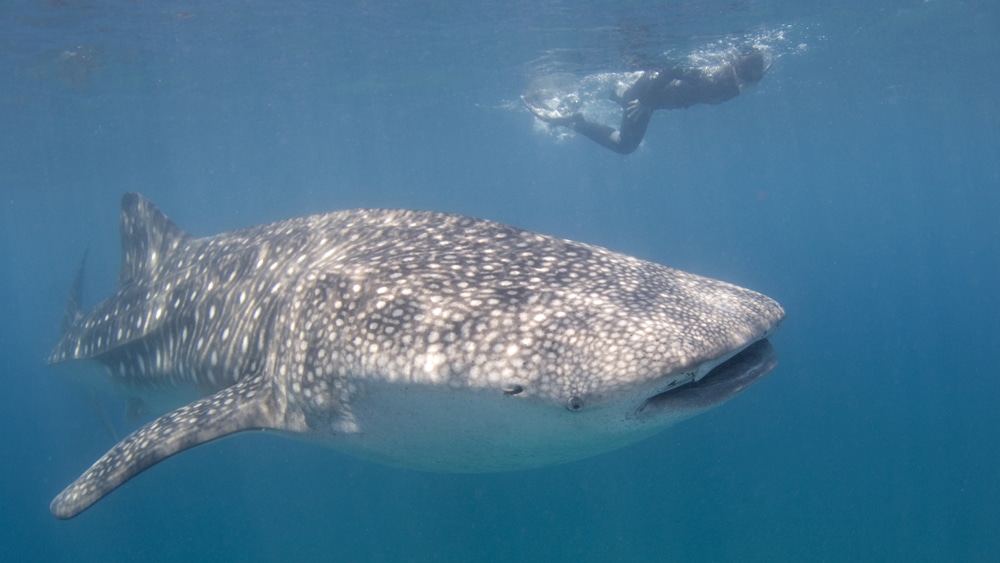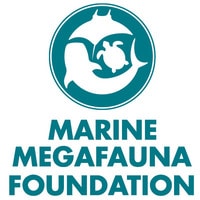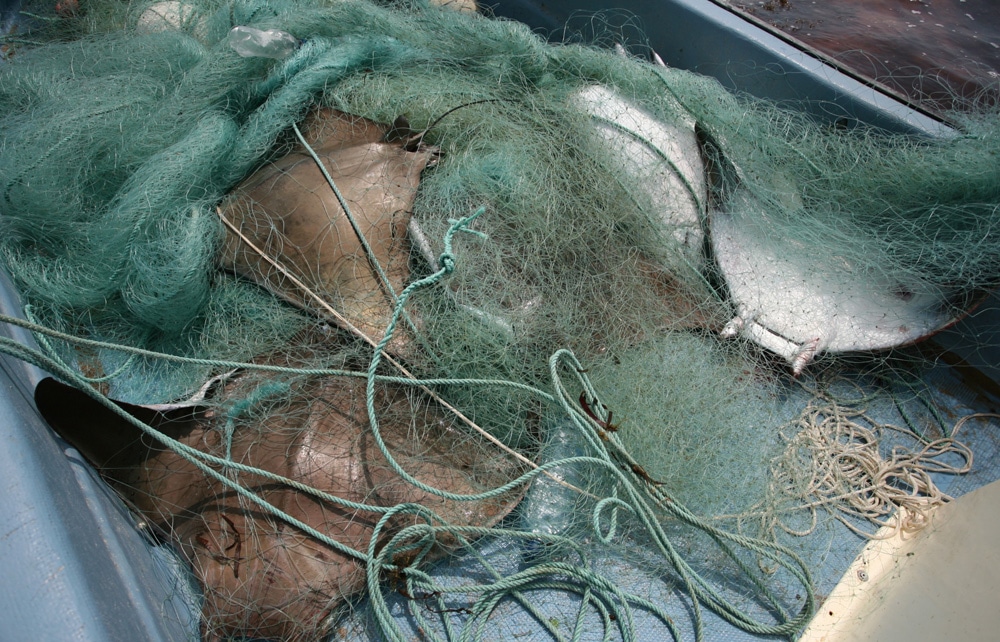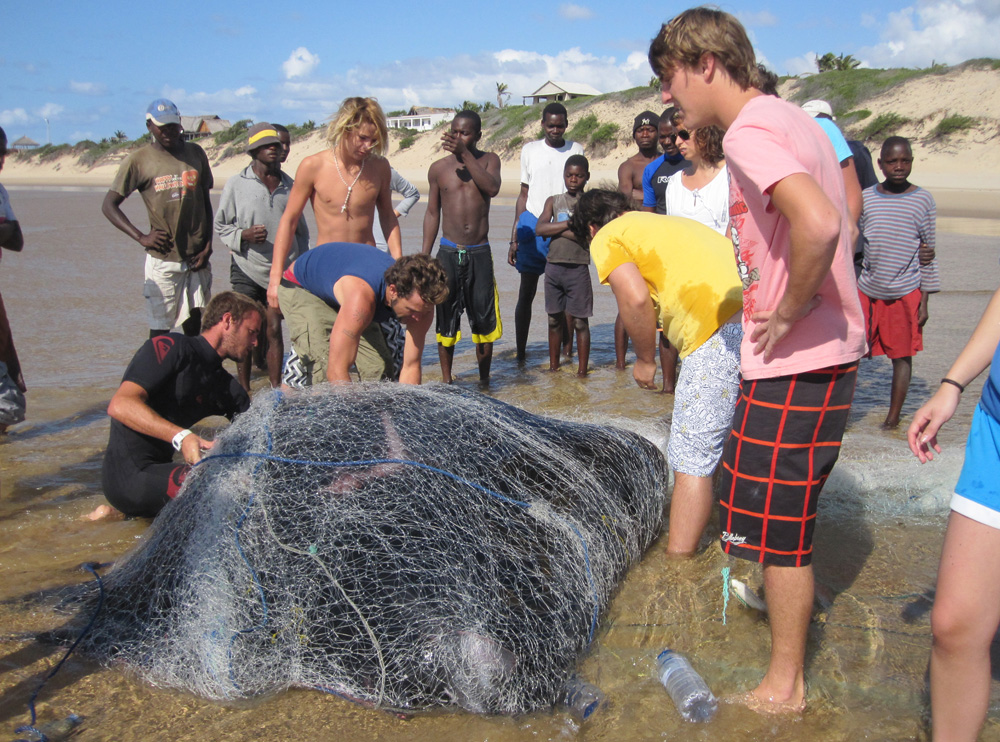Marine Life & Conservation
Mantas and Whale Sharks gain protection under new law in Mozambique

 After 20 years of research and lobbying efforts, the Marine Megafauna Foundation (MMF) is thrilled to announce a major legislative victory for ocean life in Mozambique. A new commercial fishing law enacts sweeping protections for several threatened species, including whale sharks, manta rays, and all mobula species.
After 20 years of research and lobbying efforts, the Marine Megafauna Foundation (MMF) is thrilled to announce a major legislative victory for ocean life in Mozambique. A new commercial fishing law enacts sweeping protections for several threatened species, including whale sharks, manta rays, and all mobula species.
This new legislation is a huge step in the right direction for the protection of threatened marine species in Mozambique. MMF commend the Mozambican government for taking these bold steps to protect the region’s breathtaking sea life, while still supporting the local fishing culture and economy.
“This law will make it far easier for our fishing communities to manage their impact by empowering them to create no-take zones and enforce rules limiting the use of gear that is destructive to important coral reef and mangrove habitats,” says MMF Conservation Project Manager Emerson Neves. “This will help us achieve our goal of sustainable fishing for generations to come, so we can both conserve our incredible fish life and allow people to have a stable livelihood and food source.”
The passing of this law is no small feat and has taken years of scientific research and lobbying by NGOs and institutions, including MMF, to highlight the importance of establishing protections for the threatened marine species in the region. MMF are grateful that the government has responded to the data and recommendations of scientists which has led to the formation of these new regulations.
MMF has been researching whale sharks and mobula rays in Mozambique for almost two decades. Their achievements have included the discovery that manta rays are two separate species and the first formal studies of these species in Africa. “The largest identified populations of both reef and giant manta rays in Africa have been identified off the southern Mozambican coastline, making it a critical region for their conservation in the Western Indian Ocean,” explains MMF Co-founder and Principal Scientist, Dr. Andrea Marshall.
MMF has also led groundbreaking research on whale sharks in the region. Their research into the importance of the whale shark habitat in the area and increasing human pressures, such as accidental catch in gill nets, which has halved their global population since the 1980s, helped to justify their inclusion in this new law.
“The Mozambican coast is an internationally important habitat for whale sharks, the world’s largest fish,” elaborates Dr. Simon Pierce, MMF Co-founder and Principal Scientist. “Protection in Mozambican waters provides a safeguard for the species locally, where whale sharks are the basis for sustainable marine ecotourism, but will also help these gentle giants to recover in the broader Indian Ocean. The Mozambique government has taken a commendable step for the worldwide conservation of this endangered species.”
Some of the most crucial and troubling data captured by MMF shows dramatic declines in observational sightings of marine megafauna like manta, mobula rays, and whale sharks. In 2013 they reported a 79% decline in whale shark sightings and an 88% decline in reef manta sightings, and sadly these trends continue. Their data now show declines of over 90% for giant mantas, reef mantas, and shortfin devil rays in the south of the country.
“Evidence of these stark declines, which have been attributed in large part to localized fishing pressure, are a testament to the urgency of these protections which go into effect today,” states Dr. Marshall.
MMF researchers have estimated the economic importance of manta rays and other megafauna to the Mozambican tourism industry, highlighting the economic incentive for their protection. The study, lead-authored by Dr. Stephanie Venables a senior scientist at MMF, illustrated the economic impact of manta ray tourism in the Inhambane province, including $34 million USD per year of direct economic impact of manta ray tourism, and a projected yearly loss of $16-$25 million USD if Mozambique were to lose manta rays.
Healthy populations of megafauna are crucial for maintaining healthy oceans. Manta rays and whale sharks are listed as vulnerable or endangered on the IUCN Red List with declining populations worldwide. Local conservation measures, like this law, are vital for the overall persistence of these species. Every organism plays an important role in an ecosystem, but ocean giants often play vital roles in maintaining balance and regulating resources in their environments. This in turn, naturally keeps fish populations healthy and improves the viability of fishing industries into the future.
In addition to the protection granted to mantas, mobulas, and whale sharks, the law also includes the following new regulations:
- Fishers must land the full body of any sharks caught with fins attached
- New clearer regulations for CCPs (community fishing councils)
- A ban on destructive fishing practices on coral, seagrass, or mangroves
- A ban on the harvesting of live coral
- Bycatch must be thrown back unless you have prior written permission to use it for research
- Turtle excluder devices are mandated on industrial and semi-industrial nets
While this law is a significant breakthrough, a number of other important species were not given protection. “This new protection is a huge step in the right direction and we’re thrilled that Mozambique is recognizing the importance of some of the species we study, but there are other rare and endangered species in Mozambique that still lack protection,” explains MMF Manta Research Manager, Anna Flam.
“We’re hoping to use the positive momentum from this new law, combined with our research, to lobby Mozambique to add protection for hammerhead sharks, smalleye stingrays, leopard sharks, and wedgefish, among other vulnerable species.”
MMF is currently working with other NGOs to submit a list of species that we believe must be added as an amendment to the new law.
For more information about the work of MMF visit their website by clicking here.
Images: Dr. Andrea Marshall
Marine Life & Conservation
Paul Watson Released as Denmark Blocks Japan’s Extradition Bid

Renowned anti-whaling activist Paul Watson has been released from custody in Greenland after spending five months in detention. Denmark’s Justice Ministry rejected Japan’s request for his extradition, citing insufficient guarantees that his time already served in custody would be credited against any potential sentence.
The 74-year-old Canadian-American was arrested on July 21 in Nuuk, Greenland’s capital, when his ship docked to refuel. His arrest was based on a 2012 Japanese warrant related to a 2010 encounter in Antarctic waters. Japan alleged Watson obstructed operations and caused damage to a whaling research ship during efforts to disrupt illegal whaling. Watson has consistently denied these claims, maintaining his commitment to marine conservation.
Denmark, which oversees extradition matters for Greenland, concluded that while the legal conditions for extradition were met, the lack of assurances from Japan regarding time-served credit made extradition untenable.
In a video shared by his foundation, Watson expressed gratitude and relief, saying, “After five months, it’s good to be out… and good to know they’re not sending me to Japan.” He added that the most difficult part of his time in custody was being separated from his two young sons.
Watson is a pioneering figure in marine conservation, known for founding the Captain Paul Watson Foundation in 2022 after decades of activism with the Sea Shepherd Conservation Society. His bold efforts to defend marine life have earned him widespread support, including from celebrities and conservationists. His work has also been featured in the acclaimed reality TV series Whale Wars.
Watson’s lawyer, Jonas Christoffersen, praised the decision, stating, “We are happy and relieved that Paul Watson is now free.” He added that Watson is eager to reunite with his family and continue his vital work.
The arrest occurred while Watson’s vessel, the M/Y John Paul DeJoria, was en route to the North Pacific with a team of 26 volunteers to intercept a Japanese whaling ship. His foundation described the arrest as politically motivated and emphasized that Watson’s actions were focused on ending illegal whaling practices.
Japan resumed commercial whaling in 2019 after leaving the International Whaling Commission, asserting that whale meat is a cultural tradition. Conservationists, however, continue to challenge these practices, highlighting their impact on marine ecosystems.
Despite the challenges, Watson remains steadfast in his mission to protect marine life and bring attention to whaling practices. His dedication to ocean conservation has made him a globally respected advocate for the environment.
Marine Life & Conservation
12 Days of Zero-Waste Fish-mas

This holiday period, the Marine Conservation Society, the UK’s leading ocean membership charity, invites you to make some simple changes to eating fish this Christmas to help our seas.
Dr Kenneth Bodles, Head of Fisheries and Aquaculture at the Marine Conservation Society, said, “During the festive season, our consumption increases, but so does waste. Sustainability isn’t just about where food comes from – it’s also about how you use it. By reducing waste and making the most out of your seafood, you’re not only taking steps to be more ocean-friendly, but can also help to cut costs during what is often one of the most expensive times of the year”.
The Marine Conservation Society has compiled twelve tips on how to consume seafood sustainably with zero-waste this Christmas:
Buy whole fish instead of fillets
Instead of fillets, consider buying whole fish such as salmon, hake, or lemon sole. By adopting a “nose to tail” approach with cooking, whole-baked fish not only feeds a crowd, but also helps to minimise waste and maximise sustainability by using up every part of the animal, including bones, skin, and fat.
Make fish stock
Leftover fish bones or shells can be put to good use by boiling them to make a nourishing fish stock or bisque. This can be frozen and preserved for later use and makes for a flavourful base in a soup.
Make your own fish pâté
Avoid waste by turning leftover fish, such as smoked mackerel or salmon, into a delicious pâté by blending with cream cheese and lemon. Perfect when paired with crackers.
The sustainability of salmon and mackerel varies depending on where and how it is caught or farmed. For more information on green-rated options, check the charity’s Good Fish Guide.
Buy frozen
By purchasing seafood that is frozen or vacuum-packed, this helps to reduce waste by extending the shelf life of your food.
Fish pie
If you’re wondering what to do with leftover cooked fish, why not opt for a classic fish pie with mashed potatoes, leeks, and a cheesy sauce? A sure crowd pleaser on Boxing Day.
Use the head
Don’t forget the fish head! The meat is incredibly tender and flavourful. The charity recommends a cod’s head curry or recreating Fallow’s renowned cod’s head in siracha butter.
By stretching your ingredients further, not only is this a more sustainable way to enjoy seafood, but also cost-effective by repurposing leftovers and cooking creatively.
Boxing Day brunch
Mix leftover kippers or smoked salmon with scrambled eggs for a tasty, zero-waste, Boxing Day brunch.
For best choice, make sure you buy kippers, or herring, from the North Sea and the North Irish Sea.
Zero-waste storage
A top tip from the Marine Conservation Society to avoid waste is freezing fish offcuts to save for future use.
Crisp up the skin
Even leftover fish skin can be turned into a quick savoury snack by crisping it up in an air fryer with a little olive oil and salt.
Anchovies two ways
Leftover anchovies can either be blended with butter to make a delicious anchovy butter or tossed into pasta for a hit of umami flavour.
The charity recommends opting for anchovies caught in the Bay of Biscay for best choice.
Fishcakes
For an easy, zero-waste meal, leftover seafood trimmings can be mixed with mash and fried in breadcrumbs to make fishcakes.
Pickled mussels
Try pickling mussels in 1:1 vinegar and water, with a dash of sugar for a sustainable, zero-waste snack that can be enjoyed well beyond the festive season.
Mussels farmed in the UK are a seafood superhero. Grown using low-impact methods and harvested by hand, they get all the food they need from the sea around them. This makes them one of the most sustainable, ocean-friendly, and cost-effective seafood options.
Players of People’s Postcode Lottery have raised £6.6M towards the Marine Conservation Society’s vital work in making seafood more sustainable.
Laura Chow, Head of Charities at People’s Postcode Lottery, said: “Fish is a festive favourite for many, but making sustainable choices when it comes to how we buy and eat seafood makes all the difference for our ocean. Support from players of People’s Postcode Lottery has helped the Marine Conservation Society further its sustainable seafood work, so that we can all enjoy healthier, better protected seas.”
The Marine Conservation Society encourages you to make sustainable seafood choices a year-round habit, not just for Christmas. To check how sustainable the seafood on your plate is, you can visit the charity’s Good Fish Guide. The Guide helps consumers and businesses identify the most sustainable seafood using a simple traffic light system, based on where and how species are caught or farmed. Green is the best choice, amber means improvements are needed, and red indicates fish to avoid buying.
Zero-waste gift idea
Why not embrace a zero-waste Christmas by gifting a membership to support marine conservation? It’s a meaningful, low-waste gift that helps protect our ocean for generations to come. Memberships start from as little as £5 a month – the price of a sandwich and drink from your local coffee shop.
Find the latest sustainable seafood advice for wild-caught and farmed seafood on the Good Fish Guide, downloadable to your phone from www.mcsuk.org/goodfishguide.
-

 News2 months ago
News2 months agoIconic SS United States to become the World’s Largest Artificial Reef
-

 News3 months ago
News3 months agoBook Review – 52 Assignments: Underwater Photography
-

 Gear News3 months ago
Gear News3 months agoDYNAMICNORD – New German diving brand enters the British market
-

 News3 months ago
News3 months agoExploring Cenote El Pit: A Diver’s Dream
-

 Gear News3 months ago
Gear News3 months agoTry BARE drysuits (and maybe even win one!) this Friday with Sea & Sea at North West Dive Fest
-

 Marine Life & Conservation3 months ago
Marine Life & Conservation3 months agoBook Review: Coral Triangle Cameos
-

 Blogs2 months ago
Blogs2 months agoDive the Egyptian Red Sea this Autumn with Regaldive
-

 News3 months ago
News3 months ago2024 Ocean Art Underwater Photo Competition Announced

















